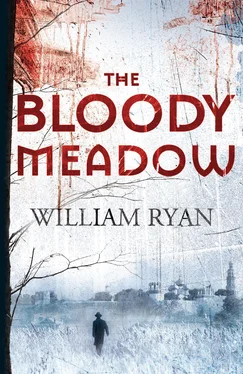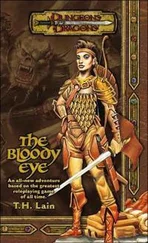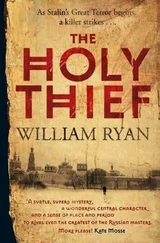William Ryan - The Bloody Meadow
Здесь есть возможность читать онлайн «William Ryan - The Bloody Meadow» весь текст электронной книги совершенно бесплатно (целиком полную версию без сокращений). В некоторых случаях можно слушать аудио, скачать через торрент в формате fb2 и присутствует краткое содержание. Жанр: Исторический детектив, на английском языке. Описание произведения, (предисловие) а так же отзывы посетителей доступны на портале библиотеки ЛибКат.
- Название:The Bloody Meadow
- Автор:
- Жанр:
- Год:неизвестен
- ISBN:нет данных
- Рейтинг книги:5 / 5. Голосов: 1
-
Избранное:Добавить в избранное
- Отзывы:
-
Ваша оценка:
- 100
- 1
- 2
- 3
- 4
- 5
The Bloody Meadow: краткое содержание, описание и аннотация
Предлагаем к чтению аннотацию, описание, краткое содержание или предисловие (зависит от того, что написал сам автор книги «The Bloody Meadow»). Если вы не нашли необходимую информацию о книге — напишите в комментариях, мы постараемся отыскать её.
The Bloody Meadow — читать онлайн бесплатно полную книгу (весь текст) целиком
Ниже представлен текст книги, разбитый по страницам. Система сохранения места последней прочитанной страницы, позволяет с удобством читать онлайн бесплатно книгу «The Bloody Meadow», без необходимости каждый раз заново искать на чём Вы остановились. Поставьте закладку, и сможете в любой момент перейти на страницу, на которой закончили чтение.
Интервал:
Закладка:
‘What happens then?’ he asked and Lomatkin shrugged in a manner that left Korolev in no doubt that too much ice wasn’t a recipe for a long life.
When all the passengers had been weighed and their names checked off, the younger pilot and the clerk examined the ledger and the latter flicked balls back and forth on an abacus. Their faces were grave and Korolev felt every one of his ninety-one kilos, bag included.
‘Captain Korolev?’ a voice asked. He looked round to see blue eyes in a pale pudgy face only a few centimetres away from his own. Korolev nodded and the man held out a thick envelope.
‘Goldberg. Colonel Rodinov sent me with a package for you. To read on the plane. Please sign this receipt.’
Korolev signed with the pen the Chekist handed him and accepted the offering, feeling its weight, thinking someone must have worked like a dog to get it ready.
‘Captain Korolev, would you come forward please?’ the weighing clerk asked and he caught the tail of a smug glance from the Party bigwig, but Goldberg, assessing the situation in an instant, walked across to the clerk and whispered in her ear. The clerk asked a question, her face seeming to lose a little colour, and the Chekist nodded.
‘Excuse me, Captain Korolev, I made a mistake,’ the clerk said, her voice uncertain, and looked down at the list again. ‘Comrade Bagraev, please – could I ask you come to the desk?’
The Party boss shot Korolev a look of irritation and walked brusquely over to the clerk, his whole demeanour expressing impatience.
‘What is the meaning of this? I’m due in Kursk this afternoon on Party business of the highest importance-’ Bagraev began, but his protest was interrupted by Goldberg tugging his sleeve. Bagraev looked at him in annoyance but stopped speaking. Goldberg leant in close and whispered once again. It was interesting to Korolev to see how quickly the irritation disappeared. Bagraev’s mouth opened as though to speak and hung there for a moment, making him look like a beached fish. He darted a look at Korolev, nodded sharply to the Chekist, then turned to walk out of the building without another word.
Goldberg came back. ‘Is there anything else I can assist with?’
‘No,’ Korolev said, conscious that everyone in the building was looking at him. ‘You’ve been more than helpful already, Comrade.’
‘A pleasure,’ Goldberg said in his quiet voice. ‘You’ll be met by Major Mushkin at the airport. The colonel asked me to tell you that he expects to hear from you this evening – the major will arrange the call. Enjoy the flight.’ He touched a finger to his hat in salute and turned to leave.
Outside the fog still lingered as the passengers walked across the packed snow towards the aeroplane. At first Korolev thought the bone-shuddering noise came from the Kalinin’s single engine, but then, through the mist, dark shadows came in a line from the left, accelerating as their propellers struggled to lift them into the sky. The roar of engines felt solid – as though someone were pushing at his chest – and even Korolev recognized that the fuselages belonged to bombers. They came past, one after the other, a chain of fat black silhouettes, their propellers creating a snowstorm that forced Korolev to look through squinted eyes.
‘Come on, Comrade,’ someone shouted in his ear, and pushed him towards the plane. ‘The imperialists will think twice about attacking us now we have bombers.’
It was the young pilot, and Korolev nodded, knowing what terrible weapons such planes could carry, and followed the boy up the steps to the cramped cabin. The pilot turned and gave him a blanket from a pile.
‘Here you are, Comrade.’ He looked at Korolev’s well-worn coat and handed him a second.
Korolev settled into his seat and looked out as part of the wing dropped down at the back and the plane juddered forward, turning to the left. He could see burning oil drums marking a way forward across the flattened snow and he made the sign of the cross in his pocket, feeling his stomach squirm as the plane bounced along, slowly picking up pace. Surely only birds and the Lord belonged above – if only he could have taken the damned train instead. The window offered him a distorted reflection that gave him no comfort – his face looked as pale as a choirboy’s surplice and as miserable as a bereaved mother.
‘Christ protect me,’ Korolev muttered as the plane lurched into the air before landing again with a solid bump and a worrying slide. He was thankful no one could hear him with all the racket. Finally, with the engine whining like an angry swarm of giant hornets, the plane soared upwards and the lights disappeared into the mist.
For a while they flew in a grey world, completely alone, as the plane hauled itself upward, metre by metre, the pressure in Korolev’s ears building as he desperately tried to swallow, before, eventually, they left the milky sea beneath them and he saw a splash of blue sky to the left, which slowly grew so that the dawn sun shone into the cabin, bathing the other passengers in gold. Korolev could see the suburbs of Moscow far beneath him, or at least the rooftops, and a frozen curve of the Moskva River where the morning mist had cleared a thousand feet below. He glanced away from the window and caught Lomatkin looking over at him. Korolev nodded back with what he hoped was polite enthusiasm, but he didn’t like this flying one bit. Not one tiny little bit.
After a few minutes of gritting his teeth so hard he thought there was a chance they might crumble to dust, Korolev decided it would be best to occupy his mind. His gaze fell on Goldberg’s thick envelope and he opened it.
Whoever had prepared the papers had fixed a photograph of Lenskaya to the first page and he quickly replaced it in the envelope, although not before taking a quick squint at it. She was unsmiling in the picture, looking to the side and downwards, her dark hair held back with a ribbon. Pretty, clearly, and there was a certain sexuality about her that was unusual for an official picture. Still, he knew better than to rely on impressions created from a photograph. Whoever had said the camera never lied – well, they’d been lying.
Reading through her Party record he decided that, if nothing else, she must have been tough. An orphan who’d battled her way into the Komsomol, the youth wing of the Party, then the State Film School, and finally the Party itself. Impressive. What was more, her professional career had been exemplary – each teacher, each project leader, each professor, each department head had congratulated her in the most flattering terms. ‘A comrade of the highest moral integrity and the greatest technical proficiency’ was the evaluation of some film director he’d never heard of. He turned a page and came to a sudden stop when Belakovsky’s name caught his eye. He looked up, but Igor Zakharovich, hatless now, was paying no attention to him, being more interested in what was passing beneath them. Korolev returned to the papers – praise, of course, this time for her invaluable assistance on a fact-finding mission to the United States of America two years before. Belakovsky had headed a delegation from the Main Directorate of the Cinematic and Photographic Industries – GUKF for short – and now Korolev remembered where he knew the man from. Belakovsky was the GUKF chairman, no less. An interesting coincidence that he should be on the same plane. Korolev looked at Belakovsky once again, curious. Lenskaya had been admitted to the Moscow orphanage in ’twenty-three at the age of twelve. That was her first bit of luck, as back then most orphans had had to take their chances on the streets. The Lord alone knew how many citizens had died in the course of the Civil War and the famines and diseases that had come with it. Twice as many as in the German War, they said. Maybe more still. And the State had struggled to cope with the aftermath. Still, she must already have been able to read and write, as one of her first acts of political usefulness had been to assist in the teaching of the younger children, and perhaps that had given her the roof over her head that many in the same position had struggled to find.
Читать дальшеИнтервал:
Закладка:
Похожие книги на «The Bloody Meadow»
Представляем Вашему вниманию похожие книги на «The Bloody Meadow» списком для выбора. Мы отобрали схожую по названию и смыслу литературу в надежде предоставить читателям больше вариантов отыскать новые, интересные, ещё непрочитанные произведения.
Обсуждение, отзывы о книге «The Bloody Meadow» и просто собственные мнения читателей. Оставьте ваши комментарии, напишите, что Вы думаете о произведении, его смысле или главных героях. Укажите что конкретно понравилось, а что нет, и почему Вы так считаете.












